Infertility Treatments
Intrauterine Insemination (IUI)
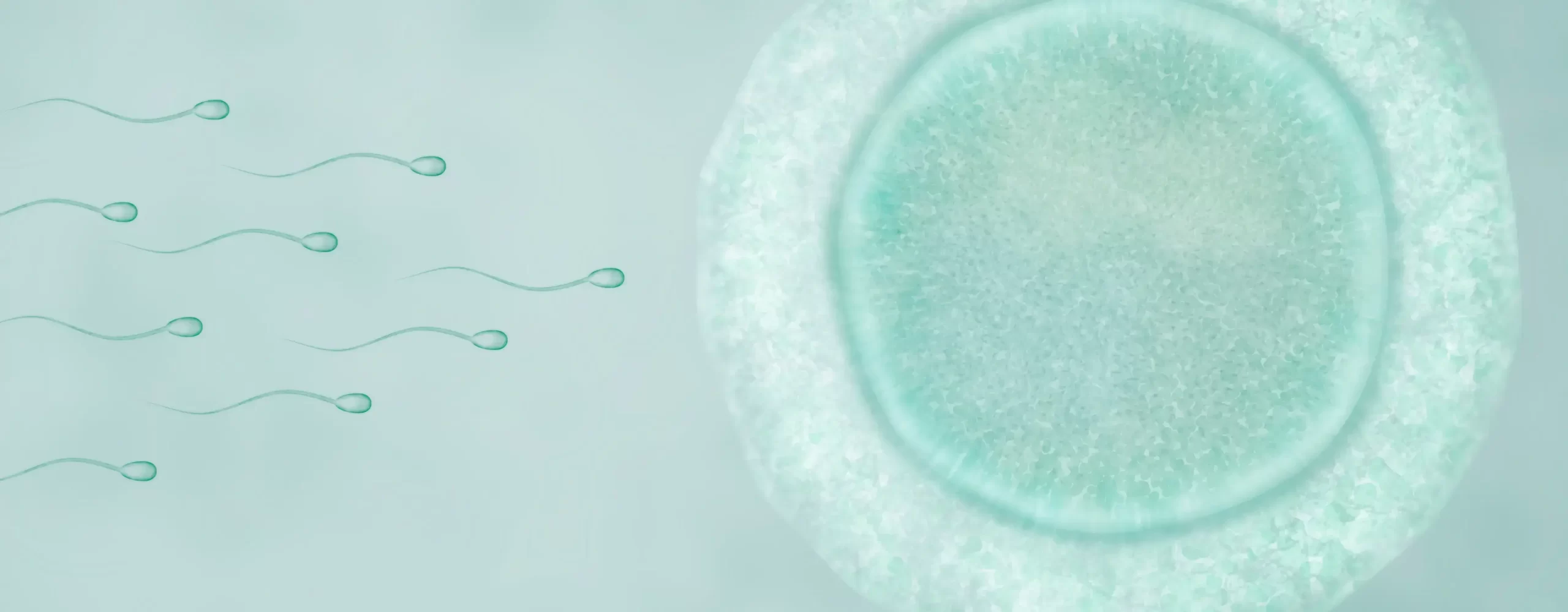
Infertility Treatments
Intrauterine Insemination (IUI)
Intrauterine Insemination (IUI) is a simple and effective fertility treatment designed to help couples achieve pregnancy. It involves placing specially prepared sperm directly into the uterus during ovulation, increasing the chances of the sperm meeting the egg.
This minimally invasive procedure is often a first step in fertility treatments, offering hope to couples struggling with mild infertility issues or unexplained fertility challenges.
- Less Invasive and Affordable
- Increased Pregnancy Chance
- Quick Procedure
- Well-Suited for Donor Sperm Use
- Painless process
0+
Annually
IUI involves collecting sperm, processing it in a lab to improve quality, and placing it into the uterus during ovulation. This process enhances the likelihood of sperm reaching and fertilizing the egg. The procedure is quick, taking only 15-20 minutes, and is relatively painless.
Ideal Candidates for IUI
- Couples with unexplained infertility.
- Male infertility issues, such as low sperm count or motility.
- Cervical mucus problems that hinder sperm movement.
No, IUI is minimally invasive and typically painless.
IUI works best for couples with unexplained infertility, mild male infertility, or ovulation problems.
IUI is safe, with rare cases of mild cramping or spotting.
In Vitro Fertilization (IVF)
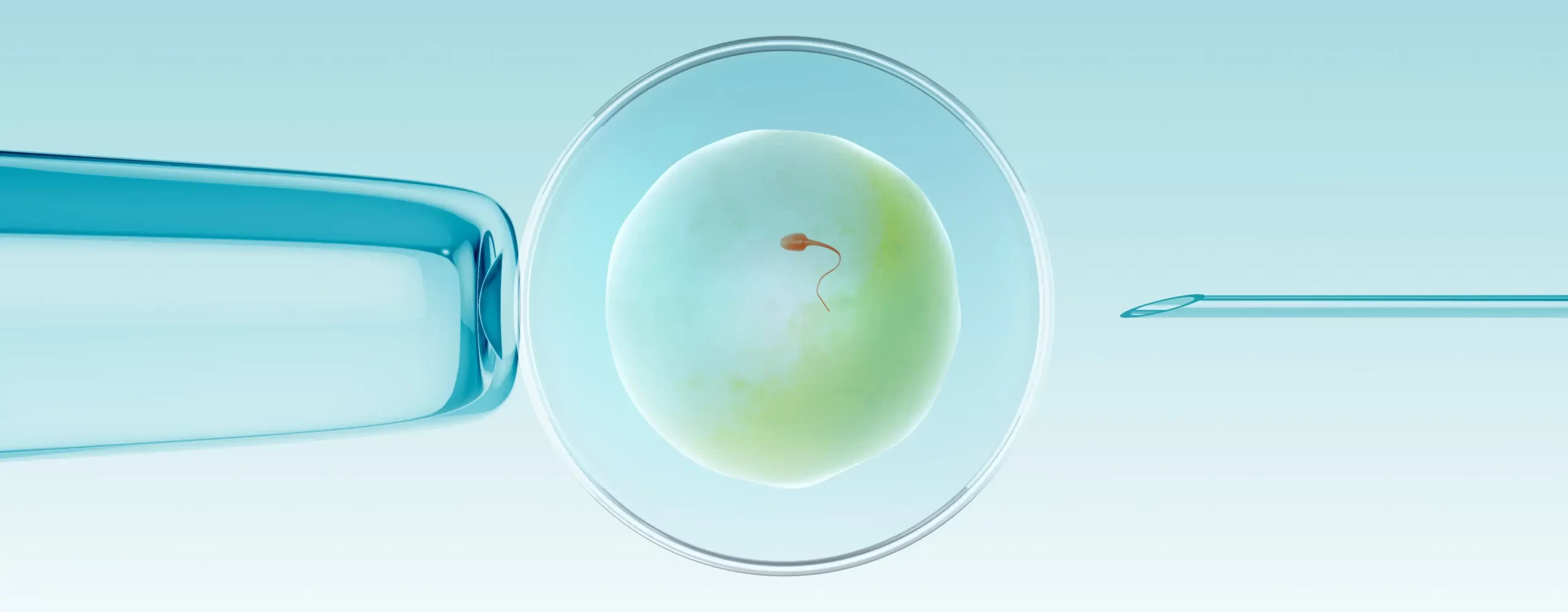
Infertility Treatments
In Vitro Fertilization (IVF)
In Vitro Fertilization (IVF) is a widely used and effective treatment to help couples overcome infertility challenges. It involves fertilizing an egg outside the body in a lab and then transferring the embryo into the uterus. IVF has brought hope to millions by providing an effective solution for various fertility challenges.
At Shree Chaitanya IVF Clinic, we offer advanced IVF lab, experienced doctors, and personalized care to make the IVF journey as smooth and successful as possible.
- High Success Rates
- Fertility Counseling
- Advanced Technology
- Adhering to ART regulations
- Personalized Treatment Plans
- Experienced Team of doctors
IVF involves several steps, starting with hormonal stimulation to produce eggs, followed by egg retrieval and fertilization in a lab. The embryo is then transferred into the uterus. This entire process is designed to maximize the chances of a successful pregnancy.
Steps of the IVF Procedure
- Ovarian Stimulation
- Egg Retrieval
- Fertilization
- Embryo Development
- Embryo Transfer
- Pregnancy Test
A complete IVF cycle usually takes 4 to 6 weeks, from hormone stimulation to embryo transfer.
Typically, 1 or 2 embryos are transferred, depending on the patient’s health and doctor’s recommendation.
The procedure itself is not painful, but you may experience mild discomfort during egg retrieval or hormone treatments.
The cost varies depending on the case. We provide transparent pricing and will discuss the details during your consultation.
Intracytoplasmic Sperm Injection (ICSI)
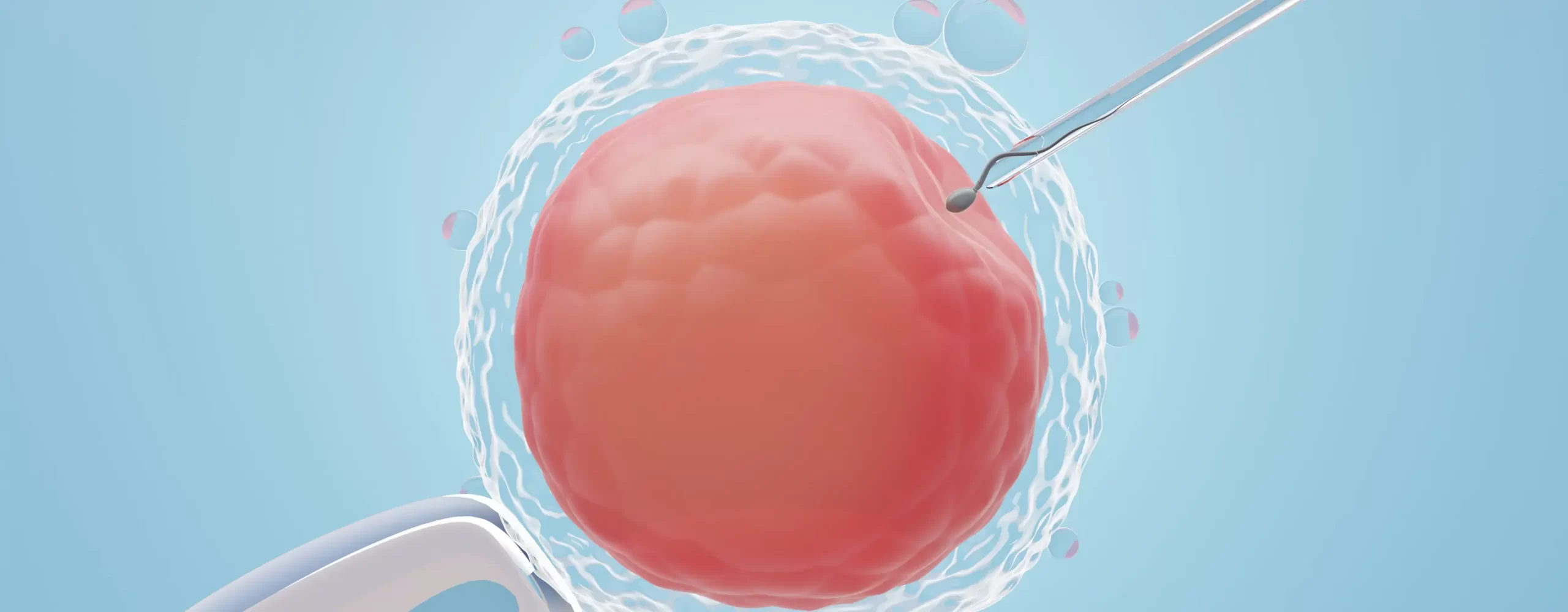
Infertility Treatments
Intracytoplasmic Sperm Injection (ICSI)
Intracytoplasmic Sperm Injection (ICSI) is an advanced fertility procedure designed to help couples facing severe male infertility issues. It involves injecting a single healthy sperm directly into the egg, increasing the chances of fertilization and successful pregnancy.
- High Success Rate
- Minimizes Sperm Requirements
- Reduces the Risk of Genetic Abnormalities
- Helps Overcome Male Infertility
- Compatible with Frozen Eggs or Sperm
- Higher precision during the fertilization
0%
ICSI is often performed as part of an IVF cycle. The process begins with egg collection from the female partner and sperm retrieval from the male partner. A single, healthy sperm is carefully injected into a mature egg under a microscope. The fertilized egg (embryo) is then cultured in the lab for a few days before being transferred to the uterus. ICSI is a safe and precise technique, offering hope to couples with male factor infertility or previous IVF failure.
ICSI is recommended for couples facing male infertility, low sperm count, or prior IVF failure.
The ICSI procedure itself is done in a day as part of the IVF cycle, but the complete process takes about 4–6 weeks.
Yes, ICSI works effectively with both fresh and frozen sperm samples.
Blastocyst Transfer
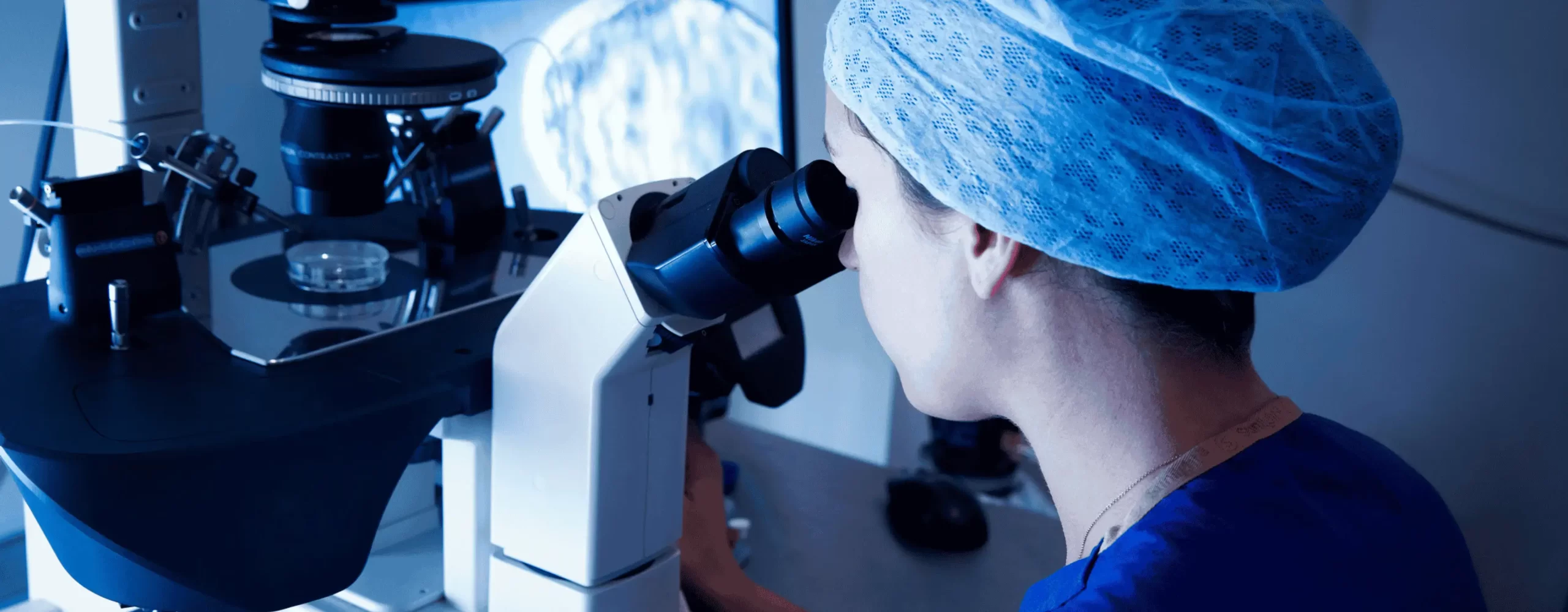
Infertility Treatments
Blastocyst Transfer
Blastocyst Transfer is an advanced step in IVF treatments, designed to improve implantation rates and increase the chances of a successful pregnancy. By transferring embryos at the blastocyst stage, this procedure allows for better selection of viable embryos.
- Higher chance of successful implantation
- Better Synchronization with Uterus
- Faster success in fewer IVF cycles.
- Lower Risk of Multiple Pregnancies
- Compatible with Frozen Eggs or Sperm
- Reduced Emotional and Financial Burden
0%
In a Blastocyst Transfer, embryos are cultured for five to six days after fertilization until they reach the blastocyst stage. This extended culture period allows for natural selection, ensuring that only the healthiest embryos are chosen for transfer. Once ready, the selected embryo is placed into the uterus using a thin catheter under ultrasound guidance.
A Day 5 transfer involves embryos at the blastocyst stage, which have better implantation potential than Day 3 embryos.
It’s ideal for patients with a good number of quality embryos. However, your doctor will assess your specific case.
The transfer itself is quick and does not require recovery time. You can resume light activities immediately.
Laser-Assisted Hatching
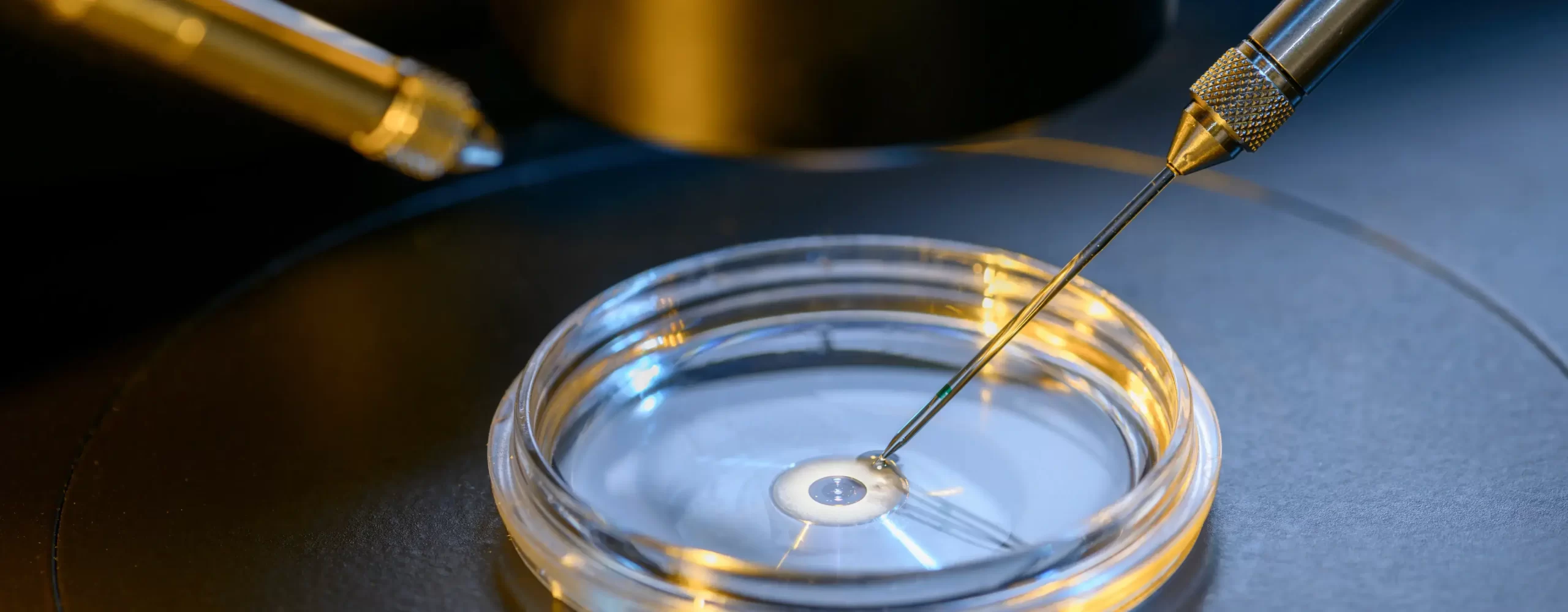
Infertility Treatments
Laser-Assisted Hatching
Laser-Assisted Hatching is a specialized procedure used during IVF treatments to increase the chances of successful implantation. It involves creating a small opening in the outer shell (zona pellucida) of an embryo using precise laser technology, helping the embryo attach more easily to the uterine lining.
- Improves Implantation Rates
- Increases the success rate of IVF cycles.
- Faster success in fewer IVF cycles.
- Assists Frozen Embryos
- Beneficial for women over 35
- Performed under strict medical standards
0%
Laser-Assisted Hatching is a quick and efficient procedure performed under microscopic guidance by highly trained embryologists. The laser is used to create a controlled, safe opening in the embryo’s outer shell. This step ensures the embryo can implant in the uterus without hindrance. It is particularly helpful for women with poor-quality eggs, frozen embryos, or a history of implantation failure.
A Day 5 transfer involves embryos at the blastocyst stage, which have better implantation potential than Day 3 embryos.
No, the procedure is performed in the laboratory and does not cause any pain to the patient.
Egg Freezing and Embryo Freezing
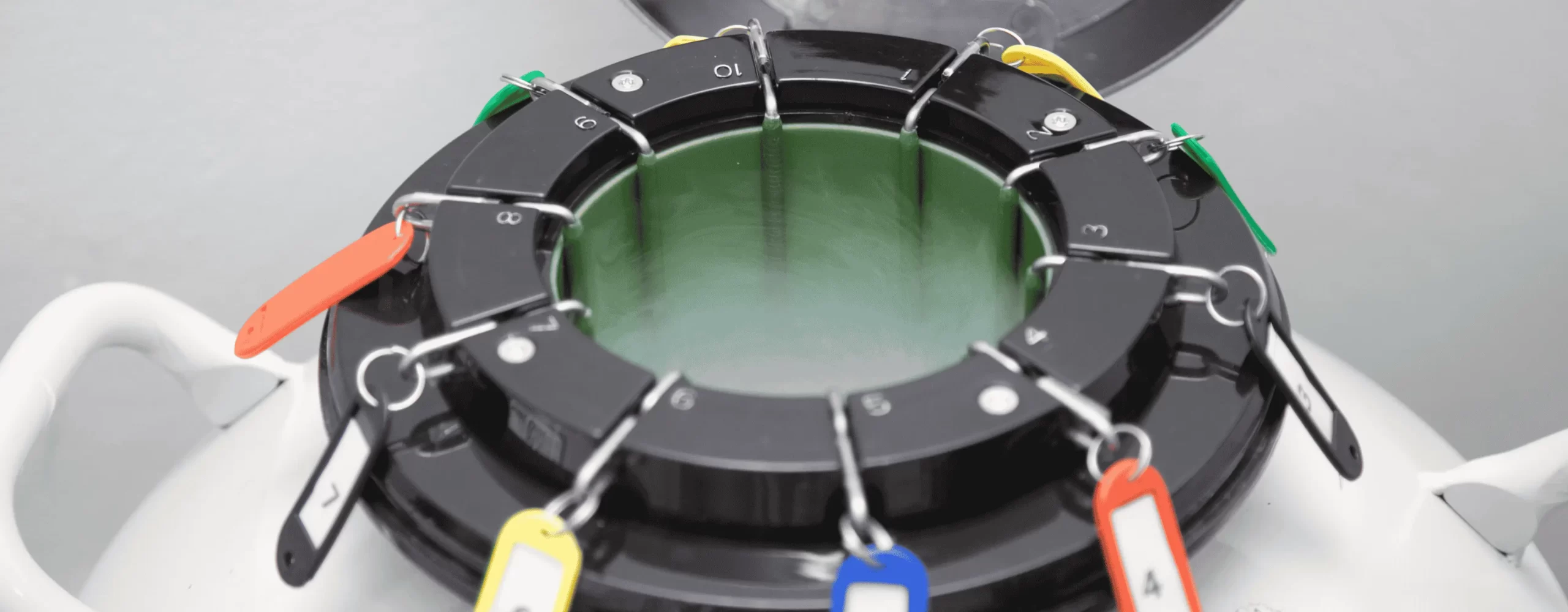
Infertility Treatments
Egg Freezing and Embryo Freezing
Egg freezing and embryo freezing are advanced reproductive techniques that allow women to preserve their fertility for the future. These procedures are ideal for women who may need to delay pregnancy due to personal, medical, or career reasons. At Shree Chaitanya Test Tube Baby Center, we offer the latest techniques in egg and embryo freezing to give you the flexibility to plan your family when you're ready.
- Ideal for women undergoing medical treatments
- Genetic Testing ensuring healthy embryos are used
- Provides freedom to choose the ideal time for pregnancy
- Allows women to delay womanhood
- Minimized Age-related Decline
0%
Storage Duration
The egg freezing process begins with hormone therapy to stimulate the ovaries to produce multiple eggs. These eggs are then carefully retrieved from the ovaries in a short, minimally invasive procedure. If you are opting for embryo freezing, the eggs are fertilized with sperm in the laboratory, and the resulting embryos are frozen for future use. Both procedures are safe, with low risks, and offer a chance to preserve fertility for the future.
The procedure involves minimal discomfort. Most women experience mild cramping or bloating after egg retrieval, but it is generally well-tolerated.
Frozen eggs or embryos can be stored for up to 10 years or more, depending on legal regulations and your personal preferences.
Donor Egg, Sperm, and Embryo Services
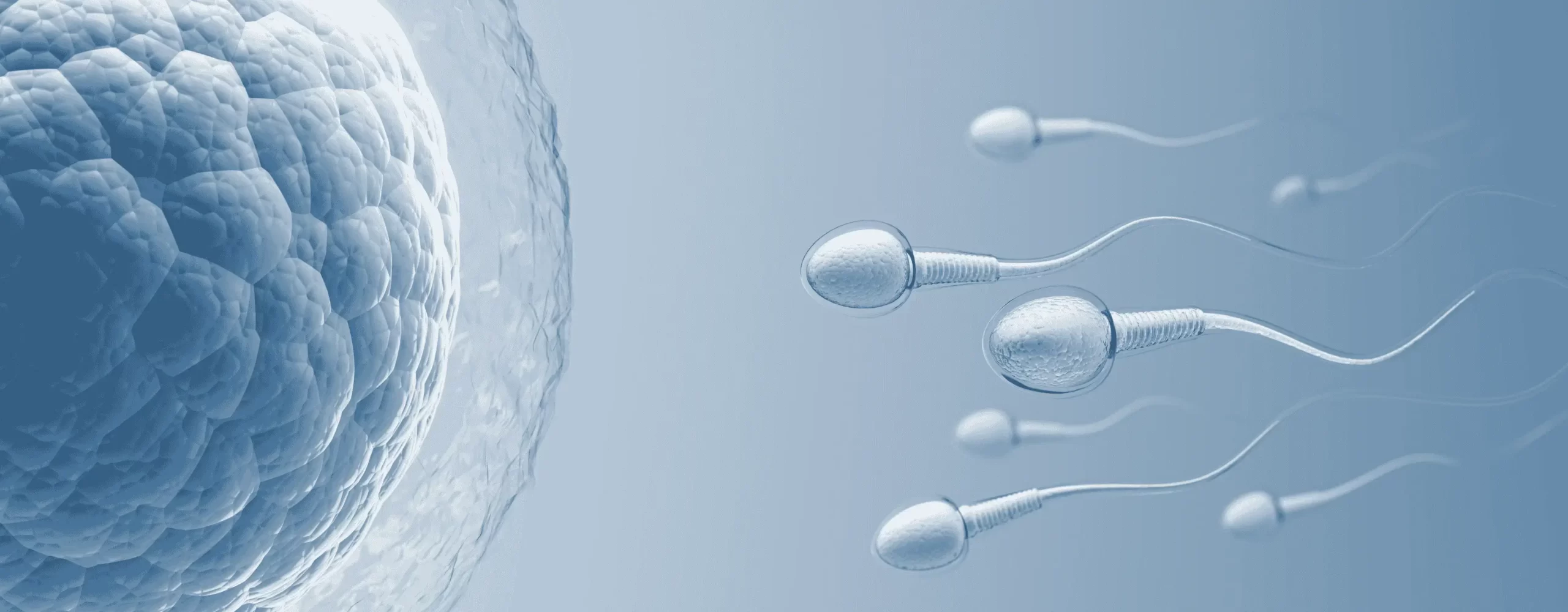
Infertility Treatments
Donor Egg, Sperm, and Embryo Services
Our Donor Egg, Sperm, and Embryo services provide hope and solutions for couples who need assistance with reproduction. Whether due to medical conditions or other reasons, we offer a reliable, safe, and supportive pathway to parenthood.
- Access to Healthy Genetic Material
- Confidentiality and Ethical Practices
- Genetic Testing ensuring healthy embryos are used
- Comprehensive health and genetic screening
- Regulated and Safe Procedures
0%
Donor services involve utilizing eggs, sperm, or embryos donated by healthy individuals to assist couples facing infertility. Here’s how it works:
- Donor Eggs: Eggs are retrieved from a donor, fertilized with the partner’s or donor’s sperm, and transferred to the recipient’s uterus.
- Donor Sperm: Sperm is used for IUI (Intrauterine Insemination) or IVF (In Vitro Fertilization) procedures.
- Donor Embryos: Pre-formed embryos are transferred to the recipient’s uterus for implantation.
The procedure involves minimal discomfort. Most women experience mild cramping or bloating after egg retrieval, but it is generally well-tolerated.
Couples facing infertility due to poor egg or sperm quality, genetic disorders, or recurrent IVF failures can benefit from these services.
No, donor anonymity is maintained as per ART regulations in Maharashtra and India.
Surrogacy

Infertility Treatments
Surrogacy
Surrogacy is a legal and medically advanced option for couples facing difficulties in conceiving a child. At Shree Chaitanya Test Tube Baby Center, we provide ethical, transparent, and well-regulated surrogacy services to help you fulfill your dream of parenthood.
- Legal Compliance as per ART and Surrogacy Laws
- Confidentiality and Ethical Practices
- Experienced Team
- Fully informed consent and transparent agreements
- Comprehensive Support
0%
Surrogacy involves the use of a surrogate mother to carry a baby for a couple or individual. Here’s how it works:
- Medical Evaluation: Both the intended parents and surrogate undergo detailed medical and psychological evaluations.
- Legal Agreements: Contracts are drawn between the surrogate and intended parents to ensure clarity and mutual understanding.
- Embryo Transfer: An embryo is created using IVF, using the intended parents' or donor’s egg and sperm, and transferred into the surrogate’s uterus.
- Pregnancy and Delivery: The surrogate carries the baby to term, with regular monitoring to ensure the health of both the surrogate and the baby.
Rules and Regulations for Surrogacy in Maharashtra
- Surrogacy is only permitted for altruistic purposes, meaning the surrogate cannot receive monetary compensation beyond medical and insurance expenses.
- Only married Indian couples (at least five years of marriage) are eligible for surrogacy.
- Both the intended parents and surrogate must meet specific eligibility criteria, including age and health conditions.
- Comprehensive legal documentation is mandatory to protect the rights of all parties involved.
No. The legal agreements ensure that the surrogate has no parental rights to the child.
The process typically takes 12-18 months, including legal formalities, medical procedures, and pregnancy.
Female Infertility Treatments

Infertility Treatments
Female Infertility Treatments
We offer comprehensive treatments to address various causes of female infertility. From ovulation issues and hormonal imbalances to structural abnormalities like uterine problems and tubal blockages, our advanced procedures are designed to help women overcome challenges such as PCOS, endometriosis, and irregular periods.
- Increased chances of natural conception.
- Safe and minimally invasive procedures
- Improved menstrual health & hormonal balance.
- Enhanced ovarian function for better egg quality.
0%
Our treatments include:
- Ovulation Induction Therapy: Uses medication to stimulate egg release for conception.
- Hormonal Treatments: Corrects irregular periods and improves ovarian health.
- PCOS Management: Focuses on reducing symptoms and improving ovulation.
- Endometriosis Management: Minimizes pain and improves fertility.
- Hysteroscopy for Uterine Abnormalities: Repairs uterine issues affecting implantation.
- Laparoscopy for Tubal Blockages: Clears blocked fallopian tubes to enhance conception.
- Egg Donation: Helps women with low egg reserve or poor-quality eggs achieve pregnancy.
This treatment uses medications to stimulate the ovaries, helping them release eggs for conception.
Laparoscopy is a minimally invasive procedure with mild discomfort and a quick recovery time.
While both are related, PCOD refers to a less severe ovarian condition, whereas PCOS (Polycystic Ovary Syndrome) is a metabolic disorder with broader health impacts.
PCOD (Polycystic Ovary Disease) is a condition where the ovaries produce multiple immature eggs, leading to hormonal imbalances, irregular periods, and other health issues.
Male Infertility Treatments

Infertility Treatments
Male Infertility Treatments
We provide advanced solutions to address male infertility. Our treatments include sperm retrieval techniques like TESA, PESA, and MESA, hormonal therapy for low testosterone, varicocele treatment, surgical correction of blocked tubes, donor sperm services, lifestyle counseling, and antioxidant therapy.
- Expert care from experienced fertility specialists.
- Improved overall reproductive health.
- Improved sperm quality
- Personalized treatment plans
0%
Using TESA/PESA/MESA techniques
- Sperm Retrieval Techniques (TESA, PESA, MESA): These are minimally invasive methods used to extract sperm directly from the testes or epididymis, ideal for men with no sperm in the semen.
- Hormonal Therapy: Designed to regulate testosterone levels, this therapy enhances sperm production and overall reproductive function.
- Varicocele Treatment: A surgical procedure that corrects swollen veins in the scrotum, improving sperm quality and reducing discomfort.
- Lifestyle Counseling and Antioxidant Therapy: Focused on improving diet, reducing stress, and addressing lifestyle factors that impact sperm health, combined with supplements to combat oxidative stress.
TESA (Testicular Sperm Aspiration) is a procedure to extract sperm from the testes, often recommended for men with no sperm in their ejaculate.
Yes, studies show that lifestyle modifications, including diet and exercise, can improve sperm health in 75% of cases.
Yes, all donor sperm services at our clinic are conducted with the utmost confidentiality and adhere to ART regulations.
